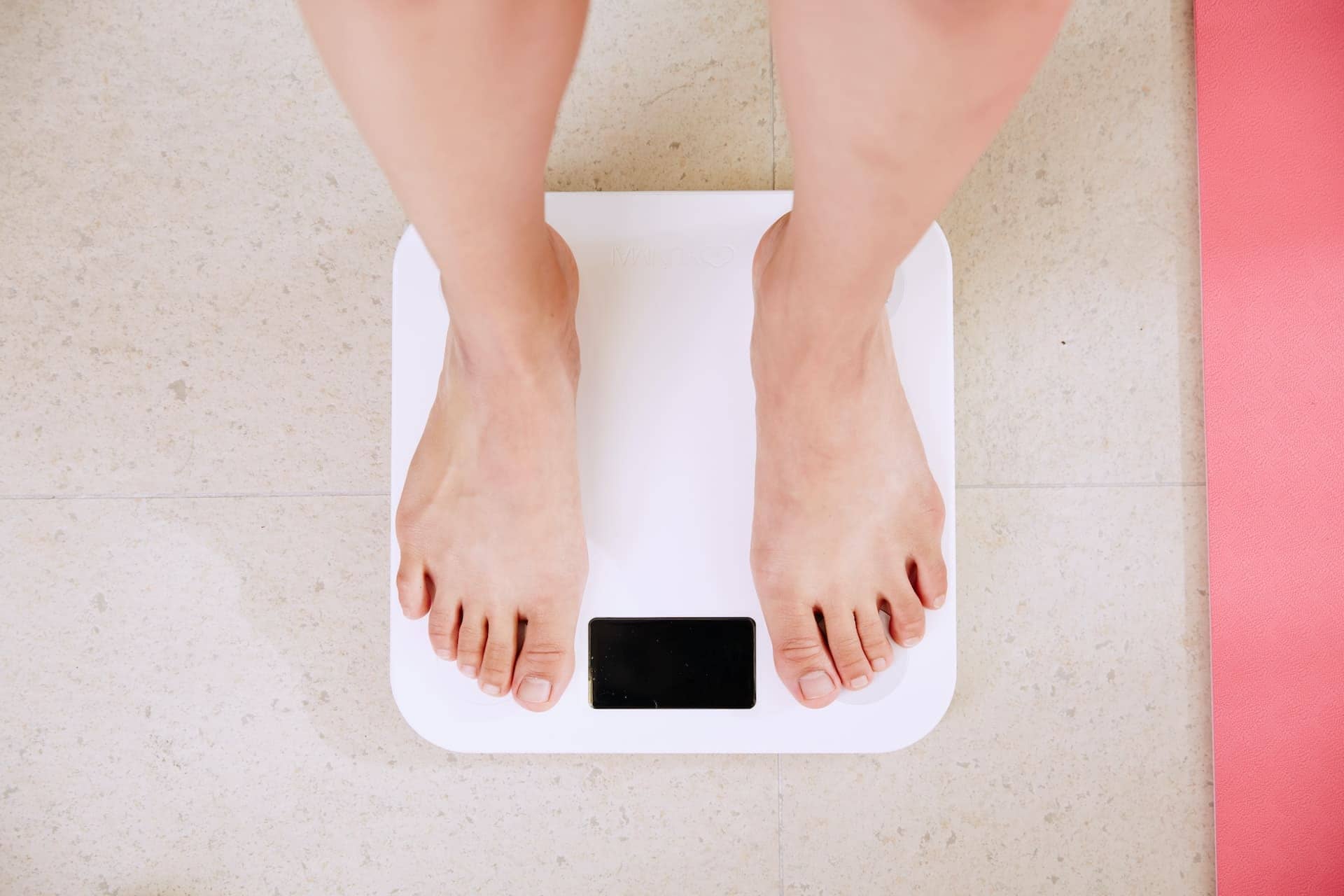The Ultimate Guide to Indian Foods to Avoid for Weight Loss: 2024
India is famous for its diverse and delicious food culture, but not all Indian foods are suitable for weight loss. Certain Indian dishes and ingredients are high in calories, fats, and sugars, which can hinder your weight loss goals.

If your goal is to maximize your weight loss with efficiency. I have compiled The Ultimate Guide to Indian foods to avoid for weight loss. In this article, we will learn the reasons why these foods should be avoided and will provide you with much healthier alternatives.
Indian Foods to Avoid for Weight Loss
To help you better understand. I have compiled this list of Indian foods to avoid for weight loss into 4 categories:
- High-Calorie Indian Foods to Avoid for Weight Loss
- High-Sugar Indian Foods to Avoid for Weight Loss
- High-Carb Indian Foods to Avoid for Weight Loss
- Processed and Packaged Indian Foods to Avoid for Weight Loss
High-Calorie Indian Foods to Avoid for Weight Loss
Indian cuisine is known for its rich and flavorful dishes. However, they are often high in calories. The following Indian foods should be avoided if you’re trying to lose weight
Fried Foods
Deep-fried snacks such as Samosas, and pakoras are very popular and loved in India, but they are high in calories and unhealthy fats.

One samosa contains around 300 calories and 13 grams of fat, while one pakora contains 80-100 calories and 4-5 grams of fat.
Instead of these fried foods, opt for baked or grilled snacks like tikkis or kebabs.
Butter Chicken
Another one of the most popular dish in India is Butter chicken. But it is also high in calories, saturated fats, and sugars.
One serving of butter chicken contains around 500-600 calories and 30-40 grams of fat. Instead of butter chicken, try grilled or baked chicken dishes with a low-fat marinade.
Biryani
Yes, I know I will probably get some hate for this. But Biryani is also on the list of Indian foods to avoid for weight loss. It is a rice-based dish that is often made with high-fat ingredients like ghee and cream.

One serving of biryani contains around 800-1000 calories and 40-50 grams of fat. Instead of biryani, try brown rice or quinoa-based dishes with lean protein like chicken or fish.
Table: High-Calorie Indian Foods to Avoid for Weight Loss
| Food | Calories | Fat | Saturated Fat | Sugar |
| Samosas | 300 | 13 g | 5 g | 2 g |
| Pakoras | 80-100 | 4-5 g | 1 g | 1 g |
| Butter Chicken | 500-600 | 30-40 g | 10-15 g | 10-15 g |
| Biryani | 800-1000 | 40-50 g | 10-15 g | 5-10 g |
High-Sugar Indian Foods to Avoid for Weight Loss
Yes, who doesn’t love mouth-watering Rasgulla or Gulab Jamun? However, Unfortunately, desserts are often high in sugar and calories, which can hinder your weight loss goals. The following Indian desserts should be avoided if you’re trying to lose weight
Gulab Jamun
Gulab Jamun is a popular Indian dessert made with fried dough balls soaked in sugar syrup. One serving of Gulab Jamun contains around 150-200 calories and 10-15 grams of sugar. Instead of Gulab Jamun, try fruit-based desserts like fruit salad or fruit chaat.

Rasgulla
Rasgulla is a popular Bengali dessert made with cheese balls soaked in sugar syrup.
One serving of Rasgulla contains around 100-150 calories and 10-15 grams of sugar.
Instead of Rasgulla, try low-sugar desserts like rice pudding made with low-fat milk and artificial sweeteners.
Kulfi
Kulfi is a traditional Indian ice cream made with condensed milk and sugar.
One serving of Kulfi contains around 200-300 calories and 20-25 grams of sugar.
Instead of Kulfi, try frozen yogurt or sorbet.
Table: High-Sugar Indian Foods to Avoid for Weight Loss
| Food | Calories | Sugar |
| Gulab Jamun | 150-200 | 10-15 g |
| Rasgulla | 100-150 | 10-15 g |
| Kulfi | 200-300 | 20-25 g |
High-Carb Indian Foods to Avoid for Weight Loss
Indian cuisine is also known for its high-carb dishes, which can be problematic for weight loss. The following Indian foods should be avoided if you’re trying to lose weight
Naan
Naan is a popular Indian bread made with refined flour and often brushed with butter.
One serving of naan contains around 300-400 calories and 40-50 grams of carbs.

Instead of naan, try roti or chapati made with whole wheat flour.
White Rice
White rice is a staple in Indian cuisine, but it is high in carbs and has a high glycemic index. One serving of white rice contains around 200-300 calories and 40-50 grams of carbs.
Instead of white rice, try brown rice or quinoa, which are lower in carbs and have more fiber.
Potato-based Dishes
Many Indian dishes like Pakoras and curry are made with potatoes, which are high in carbs and calories.
One serving of aloo gobi, for example, contains around 250-300 calories and 30-40 grams of carbs.
Instead of potato-based dishes, try vegetable-based dishes like sautéed spinach or grilled vegetables.
Table: High-Carb Indian Foods to Avoid for Weight Loss
| Food | Calories | Carbs |
| Naan | 300-400 | 40-50 g |
| White Rice | 200-300 | 40-50 g |
| Potato-based Dishes | 250-300 | 30-40 g |
Processed and Packaged Indian Foods to Avoid for Weight Loss
Processed and packaged foods often contain added sugars, preservatives, and unhealthy fats, which can hinder your weight loss goals. The following Indian foods should be avoided if you’re trying to lose weight
Instant Noodles
Instant noodles like Maggie, are a popular snack in India, but Have you ever checked its nutrition profile? they are high in sodium and unhealthy fats.

One serving of instant noodles contains around 400-500 calories and 10-15 grams of fat. Instead of instant noodles, try vegetable-based soups or salads.
Instant Mixes
Instant mixes for dishes like idli, dosa, and vada are convenient, but they are often high in sodium and preservatives.
One serving of instant mix contains around 200-300 calories and 10-15 grams of sodium. Instead of instant mixes, try making these dishes from scratch with whole-grain flours and fresh ingredients.
Packaged Snacks
Packaged snacks like chips, crackers, and biscuits are convenient when you are looking for a quick snack. However, they are often high in calories, unhealthy fats, and preservatives.
One serving of packaged snacks contains around 200-300 calories and 10-15 grams of fat. Instead of packaged snacks, try homemade snacks like roasted chickpeas or air-popped popcorn.
Table: Processed and Packaged Indian Foods to Avoid for Weight Loss
| Food | Calories | Fat | Sodium |
| Instant Noodles | 400-500 | 10-15 g | 800-1000 mg |
| Instant Mixes | 200-300 | 1-2 g | 500-700 mg |
| Packaged Snacks | 200-300 | 10-15 g | 200-300 mg |
Conclusion
Indian cuisine is rich in flavor and diversity, but not all foods are ideal for weight loss. By avoiding the high-calorie, high-sugar, high-carb, and processed foods listed above, you can create a healthier, lower-calorie Indian diet that will help you achieve your weight loss goals.
Instead, focus on incorporating more whole grains, vegetables, fruits, and lean proteins into your diet. These foods are low in calories and high in fiber and nutrients, making them ideal for weight loss.
Remember, weight loss is not just about avoiding certain foods. It’s also about creating a balanced, calorie-controlled diet and doing some workouts if possible in good form.
Disclaimer: All of the above information is based on a general nutrition guideline. Consulting with a registered dietitian can help you create a personalized meal plan that will help you lose weight in a healthy and sustainable way.
In summary, here are the key takeaways:
- Indian foods to avoid for weight loss include high-calorie dishes like biryani and butter chicken, high-sugar desserts like gulab jamun and rasgulla, high-carb foods like naan and white rice, and processed and packaged foods like instant noodles and packaged snacks.
- Instead, focus on incorporating more whole grains, vegetables, fruits, and lean proteins into your diet.
- Consulting with a registered dietitian can help you create a personalized meal plan that will help you lose weight in a healthy and sustainable way.
If you find anything useful, consider sharing and following us on our social groups (Facebook, Telegram, and Instagram) to be a part of a healthy community.
For any suggestions and questions, you can contact us directly.








Fantastic work! The details you shared here are impressive and very useful. Thanks for providing such quality content.